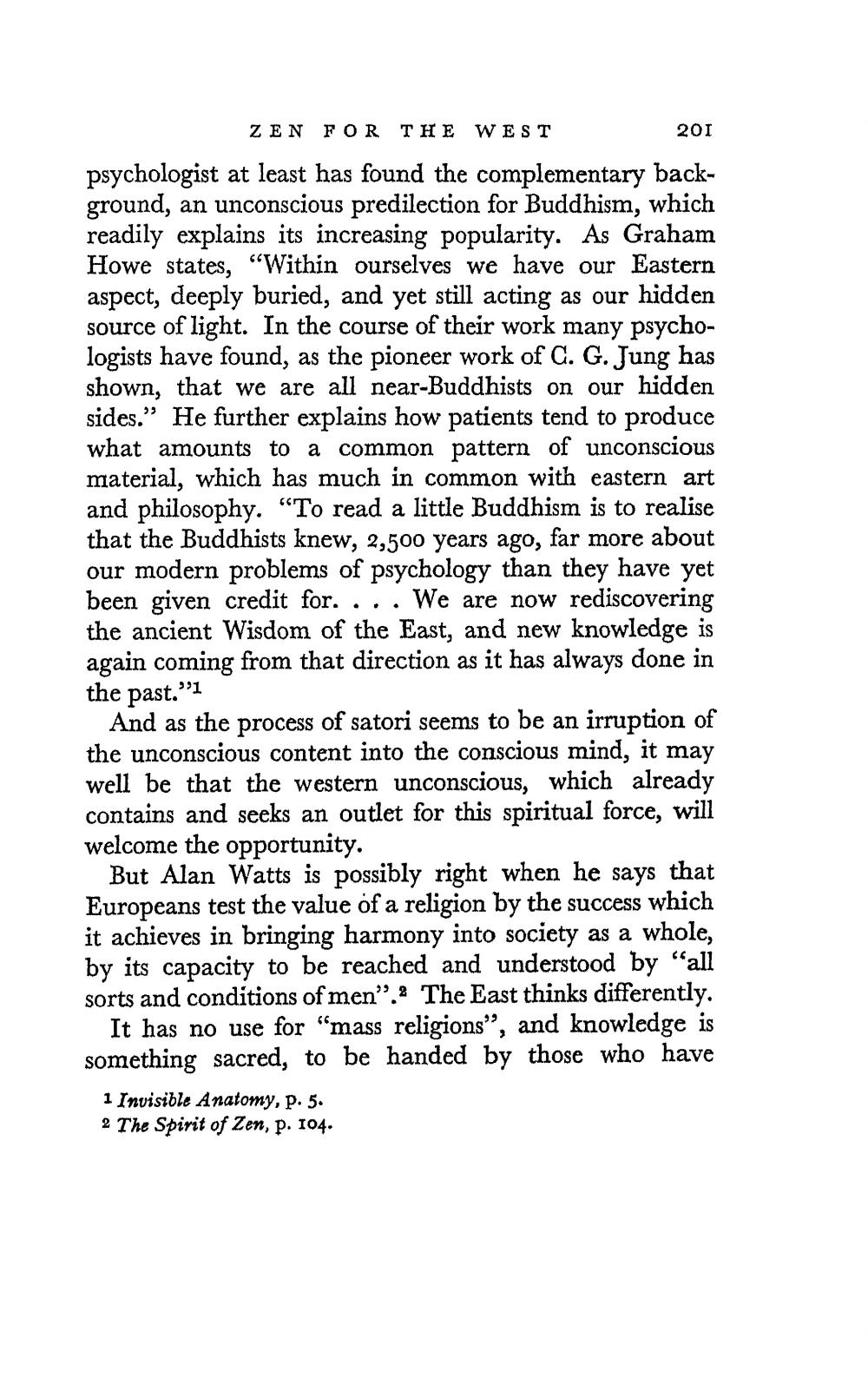________________
ZEN FOR THE WEST
201 psychologist at least has found the complementary background, an unconscious predilection for Buddhism, which readily explains its increasing popularity. As Graham Howe states, “Within ourselves we have our Eastern aspect, deeply buried, and yet still acting as our hidden source of light. In the course of their work many psychologists have found, as the pioneer work of C. G. Jung has shown, that we are all near-Buddhists on our hidden sides. He further explains how patients tend to produce what amounts to a common pattern of unconscious material, which has much in common with eastern art and philosophy. “To read a little Buddhism is to realise that the Buddhists knew, 2,500 years ago, far more about our modern problems of psychology than they have yet been given credit for. ... We are now rediscovering the ancient Wisdom of the East, and new knowledge is again coming from that direction as it has always done in the past."'1
And as the process of satori seems to be an irruption of the unconscious content into the conscious mind, it may well be that the western unconscious, which already contains and seeks an outlet for this spiritual force, will welcome the opportunity.
But Alan Watts is possibly right when he says that Europeans test the value of a religion by the success which it achieves in bringing harmony into society as a whole, by its capacity to be reached and understood by "all sorts and conditions of men'.2 The East thinks differently.
It has no use for "mass religions”, and knowledge is something sacred, to be handed by those who have
1 Invisible Anatomy, p. 5. 2 The Spirit of Zen, p. 104.




